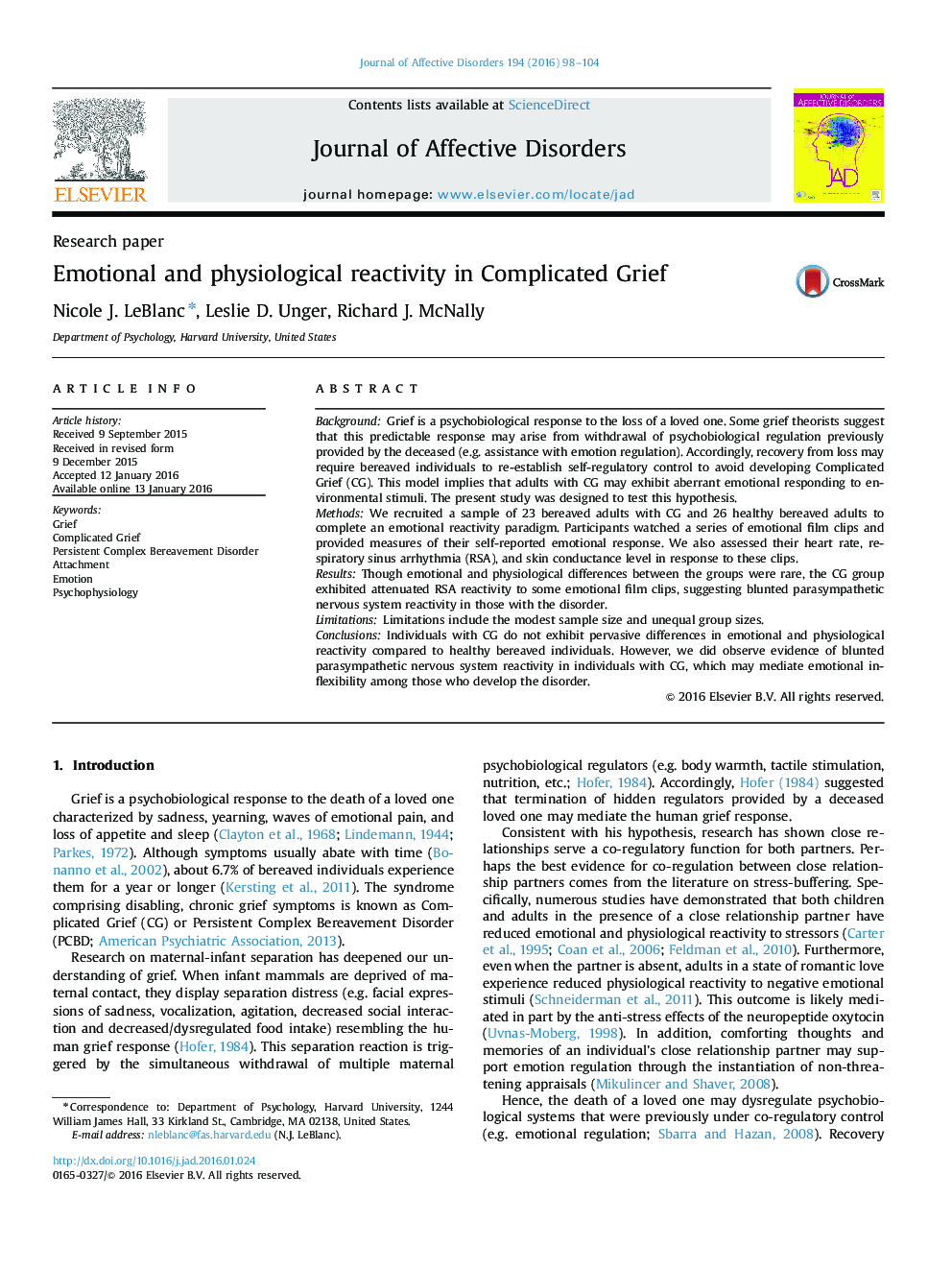| Article ID | Journal | Published Year | Pages | File Type |
|---|---|---|---|---|
| 4185860 | Journal of Affective Disorders | 2016 | 7 Pages |
•Examined self-report and physiological reactivity to generic emotion stimuli in CG.•Observed general absence of differential reactivity among those with CG.•CG associated with greater self-reported reactivity to positive emotion stimuli.•Preliminary evidence of attenuated PNS reactivity to some emotion stimuli in CG.
BackgroundGrief is a psychobiological response to the loss of a loved one. Some grief theorists suggest that this predictable response may arise from withdrawal of psychobiological regulation previously provided by the deceased (e.g. assistance with emotion regulation). Accordingly, recovery from loss may require bereaved individuals to re-establish self-regulatory control to avoid developing Complicated Grief (CG). This model implies that adults with CG may exhibit aberrant emotional responding to environmental stimuli. The present study was designed to test this hypothesis.MethodsWe recruited a sample of 23 bereaved adults with CG and 26 healthy bereaved adults to complete an emotional reactivity paradigm. Participants watched a series of emotional film clips and provided measures of their self-reported emotional response. We also assessed their heart rate, respiratory sinus arrhythmia (RSA), and skin conductance level in response to these clips.ResultsThough emotional and physiological differences between the groups were rare, the CG group exhibited attenuated RSA reactivity to some emotional film clips, suggesting blunted parasympathetic nervous system reactivity in those with the disorder.LimitationsLimitations include the modest sample size and unequal group sizes.ConclusionsIndividuals with CG do not exhibit pervasive differences in emotional and physiological reactivity compared to healthy bereaved individuals. However, we did observe evidence of blunted parasympathetic nervous system reactivity in individuals with CG, which may mediate emotional inflexibility among those who develop the disorder.
